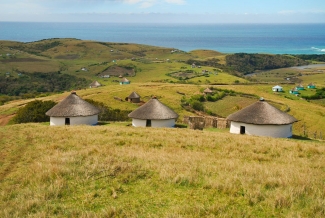Evaluating the cost-effectiveness of ecosystem-based adaptation: Kamiesberg wetlands case study
Ecosystem-based adaptation (EbA) is increasingly being promoted as a cost-effective means of adaptation
to climate change. However, in spite of considerable international press, there is still little evidence to
substantiate this claim. This study proposes a method through which the cost-effectiveness of EbA
strategies can be evaluated against alternative adaptation options, and contributes to South African
literature on the subject. The potential cost-effectiveness of wetland restoration is assessed as a means of
